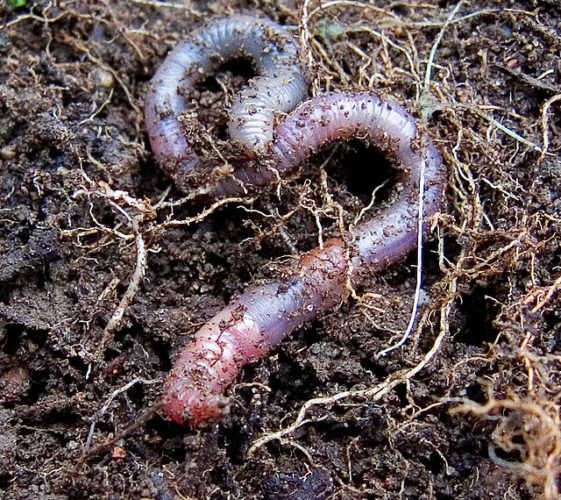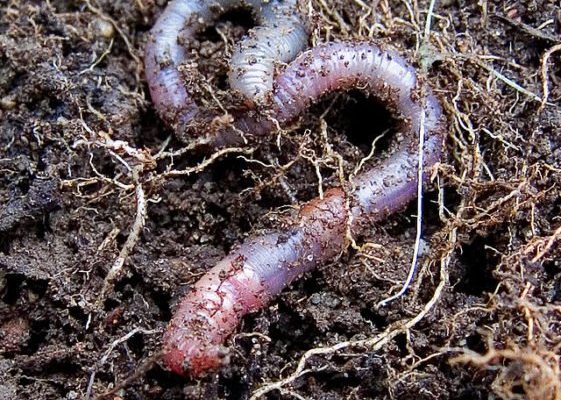
Let me explain. Imagine your garden soil is like a cake batter. If it’s too dry or lacks flavor, the cake won’t rise and will taste bland. Earthworms help create the right mix by aerating the soil, breaking down organic matter, and leaving valuable nutrients behind. Their contributions turn that dry cake batter into a fluffy, flavorful masterpiece. So, if you’re diving into gardening or just curious about soil health, understanding how earthworms improve garden soil fertility can make a world of difference.
What Do Earthworms Do for Soil Health?
Earthworms are often called *nature’s tillers*. As they wiggle through the soil, they create tiny tunnels that allow air and water to penetrate deeper. When it rains, those tunnels help water reach plant roots rather than just running off the surface. This means your plants can access water more easily, which is essential for growth.
But that’s just the beginning. Earthworms also munch on **organic matter** like dead leaves and decaying plants, breaking it down into simpler substances. This process is called *decomposition*, and it’s vital for transforming dead material into nutrients that plants can absorb. The result? Rich, fertile soil that supports healthy plants.
You might be wondering what happens to all that organic material after the worms eat it. They excrete a nutrient-rich substance known as *castings*. These castings are like a natural fertilizer, packed with essential elements such as nitrogen, phosphorus, and potassium. You can think of earthworm castings as a superfood for your garden—helping plants grow strong and vibrant.
How Do Earthworms Improve Soil Structure?
Good soil structure is crucial for healthy gardens. When soil is compacted, it restricts root growth and water movement. Here’s where earthworms shine again. Their burrowing actions loosen compacted soil, creating a crumbly texture that encourages root expansion. This loose soil allows plant roots to take hold and spread out, making it easier for them to access water and nutrients.
Moreover, earthworms help bind soil particles together through their castings. This binding creates a network of aggregates that improves drainage and aeration. You can think of it like a sponge: well-structured soil holds moisture and releases it gradually to plants, keeping them hydrated without the risk of drowning.
If you’ve ever encountered clay-heavy soil that felt like cement, you know how challenging it can be for plants. Earthworms can turn that heavy clay into a more workable, fertile environment. By promoting the formation of aggregates, they enhance soil resilience, making it easier to cultivate.
The Role of Earthworms in Nutrient Cycling
Soil is a complex ecosystem, and earthworms play a crucial role in nutrient cycling. When they feed on organic matter, they break it down into simpler compounds that plants can absorb. This transformation is vital for making nutrients available to your plants and contributing to overall soil health.
One important aspect of nutrient cycling is the role of earthworm castings. These excretions are not just a fertilizer; they’re also high in beneficial microorganisms that support plant growth. These microorganisms work alongside earthworms to break down even more organic material and release nutrients back into the soil.
Let’s consider an example. If you plant tomatoes, they require nitrogen to thrive. Earthworms, through their feeding and burrowing, enhance the nitrogen content of your soil. This nutrient boost can lead to bigger, juicier tomatoes, showing just how interconnected earthworms, nutrients, and plants really are.
Benefits for Plant Growth
When it comes to plant growth, the contributions of earthworms are undeniable. By improving soil structure, aeration, and nutrient availability, they create an ideal environment for plant roots. Healthier roots mean more robust plants, which translates to healthier fruits and flowers.
Plus, the presence of earthworms is generally a sign of good soil health. If you find these slimy creatures in your garden, it’s likely a sign that you’re doing something right. After all, they thrive in environments rich in organic material.
Let’s not forget that earthworms also help suppress soil-borne diseases. Their burrowing action disrupts disease cycles, making it harder for harmful pathogens to establish themselves. This means not only do your plants have better access to nutrients, but they also stand a better chance against diseases.
Encouraging Earthworm Populations in Your Garden
Now that you know how beneficial earthworms can be, you might wonder how to attract them to your garden. Fortunately, enhancing earthworm populations is pretty straightforward. Here are a few tips to help create a welcoming environment:
- Compost regularly: Adding organic matter to your garden, like compost or well-rotted manure, provides food for earthworms.
- Avoid chemical fertilizers: These can harm earthworms. Instead, opt for organic fertilizers that nourish plants and provide a safe habitat for worms.
- Keep the soil moist: Earthworms prefer damp environments, so watering your garden is essential—just avoid waterlogging to keep the soil healthy.
- Minimize tilling: Over-tilling can disturb earthworm habitats. If possible, practice no-till gardening or at least reduce how often you till.
By following these tips, you can create the perfect haven for earthworms and watch your garden thrive in return.
The Bottom Line: Earthworms as Nature’s Gardeners
So, what’s the takeaway? Earthworms are more than just creepy crawlers; they’re essential players in creating fertile, healthy soil. Their activities aerate the ground, enhance nutrient cycling, and improve soil structure—all factors that lead to better plant growth.
Embracing these little helpers can transform your gardening experience. Just like a chef relies on quality ingredients, your garden flourishes with rich, worm-friendly soil. So, the next time you dig into your garden, take a moment to appreciate what’s happening beneath your feet. You’re not just planting seeds; you’re nurturing an entire ecosystem, with earthworms as some of your best allies.
Whether you’re growing vegetables, flowers, or herbs, understanding how earthworms improve garden soil fertility is one of the best things you can do for your garden. Here’s to happy gardening and a vibrant, thriving ecosystem filled with life!

